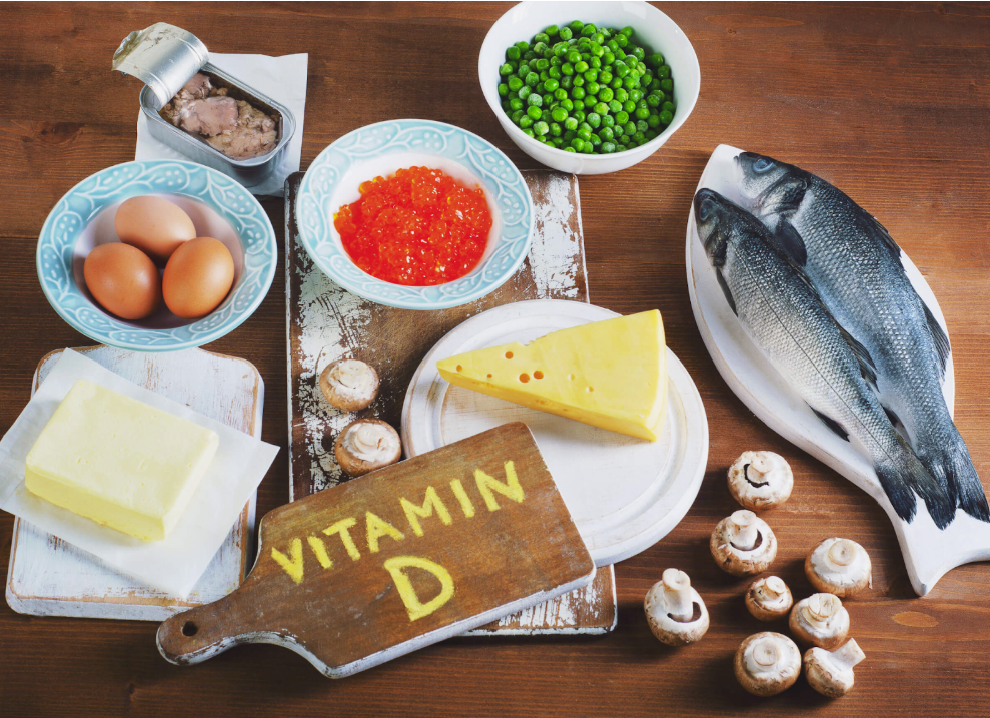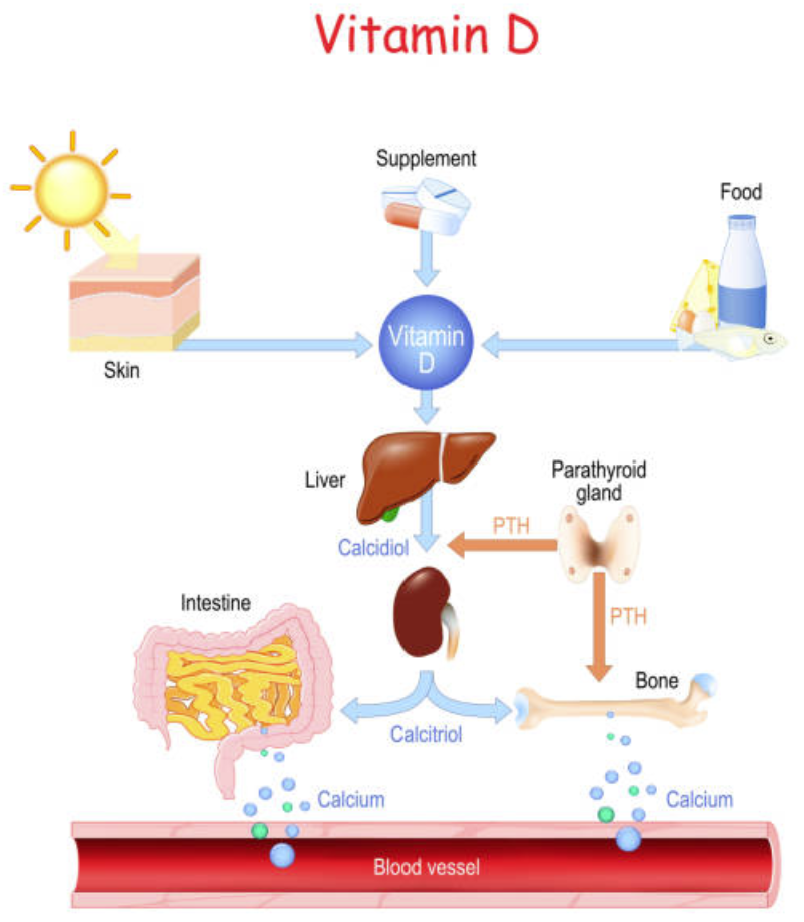
You’ve heard about vitamin D and that it is important. But you may be wondering, why is vitamin D something everyone cares about. Every supplement store carries this vitamin but first let’s understand what a vitamin actually is. A vitamin is defined as a compound that the body does not make in sufficient quantities and is essential for normal functioning and must be consumed, either by diet, or an additional such as supplementation.
Vitamin D in particular is a unique vitamin because we can synthesize it in large quantities, but only when the body is exposed to sunlight in the form of UVB light. UVB stands for ultraviolet “B” which is not blocked by the Ozone layer of the atmosphere. Ultraviolet meaning “above” violet on the spectrum of light is not visible to the human eye. We cannot see it but we can be affected by the light.
In your skin, cells contain a precursor compound called 7-dehydrocholesterol. UVB light photons convert this chemical into pre-vitamin D3. Over the next few hours, vitamin D3 forms by isomerizing (changing form) in the body. This molecule is called cholecalciferol. Chole- as in cholesterol calci- as in calcium and ferol- meaning to carry. However, this is not the final step. The blood stream carries to the liver where it is changed and forms 25 (OH)D or calci-Di-ol meaning 2.
The process is then continued to the kidneys where 1,25(OH)D is formed and “Calci-Tri-ol” is the final form complete with 3 hydroxyl groups. But that isn’t necessary to your knowledge. Let’s summarize:
Cholesterol derivative in the skin + UVB lightè provitamin D3è (changes form) vitamin D3ècalcidiol èCalcitriol the active form of vitamin D3.

SO, a question you may be thinking, why have I never heard of calcitriol? The answer is because this is the hormone form of vitamin D3. Cholecalciferol is the precursor to the compound. Calcitriol is not sold over the counter because it is a hormone and would immediately change the body. Cholecalciferol is only utilized when the body needs it converted on a needed basis. Calcidiol is active, like throwing gas on a fire. Cholecalciferol would be like putting oil on a fire. Less flame but still used.
Did you know that almost every cell in the body has a vitamin D receptor? SO, it is extremely important in your health and the buzz word of “optimization” of your bodily functions. How much vitamin D is produced in the body naturally by sunlight?
In 30 minutes of full sun exposure to the skin (modesty applies), the body produces roughly 20,000 international units (IU’s) of vitamin D. That’s almost 10x more than the recommended daily value which is 600-800IU per day. I am a believer that naturally produced vitamin D is better than synthetic supplementation. Getting out in the sunlight and producing vitamin D is crucial to the health of the body. Light is incredibly important for our hormone cycles and how we sleep.
In the winter time, we don’t get much direct sunlight here in northeast Ohio so the only other alternative would be to get in a tanning bed and supplement the light. Obviously in moderation taking into account skin type as well.
Vitamin D does not necessarily need your skin to tan to work. We get tan from a response from the body to protect the DNA within the nucleus with a pigment secreted from melanocytes, but the processes do overlap that they happen at the same time.
- 🦴 Bone Health & Calcium Regulation
- Increases calcium and phosphorus absorption from the gut
- Helps maintain proper blood levels of these minerals for bone mineralization
- Prevents rickets in children and osteomalacia/osteoporosis in adults
- 🛡️ Immune Function
- Modulates innate and adaptive immune systems
- Helps your body respond to pathogens while preventing chronic inflammation
- May reduce risk/severity of respiratory infections, autoimmune diseases (e.g., MS, Type 1 diabetes)
- 💪 Muscle Function
- Vitamin D receptors are present in muscle tissue
- Helps with strength, coordination, and balance
- Deficiency is linked to muscle weakness and increased fall risk in older adults
- 🧠 Brain & Mood
- Supports neurotransmitter regulation, including serotonin and dopamine
- May influence mood, memory, and cognition
- Deficiency linked to depression, brain fog, and possibly dementia risk
- 💓 Heart Health
- Plays a role in blood pressure regulation
- Helps reduce inflammation in blood vessels
- May reduce risk for hypertension, atherosclerosis, and heart failure (though more research is ongoing)
- 🧪 Cell Growth & Cancer Prevention
- Influences cell differentiation and apoptosis (programmed cell death)
- May help reduce abnormal cell growth (like in some cancers)
- Low levels linked to increased risk of colon, breast, and prostate cancers
Ohio Sports Chiropractic and Rehab
📍 10360 Northfield Rd, Northfield, OH 44067
📞 (330) 908-0203
🌐 ohiosportschiropractic.com
